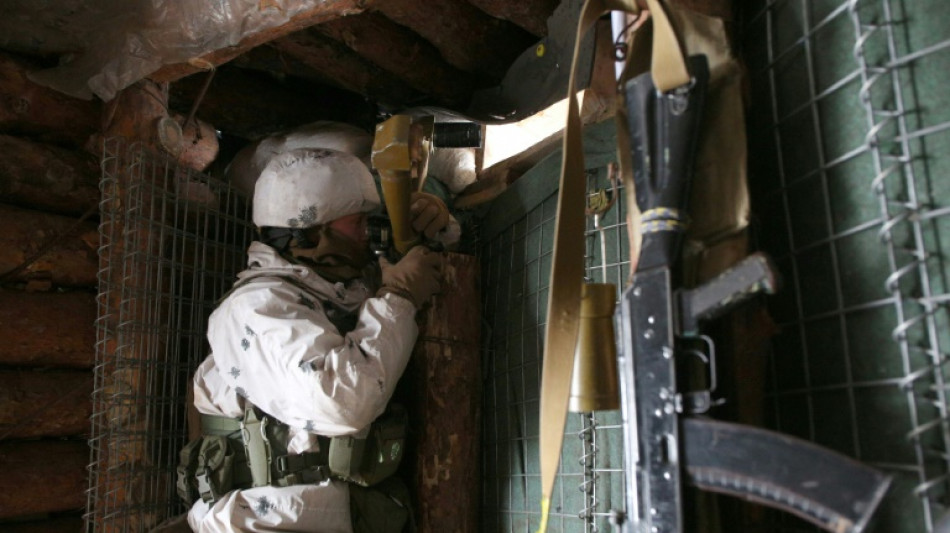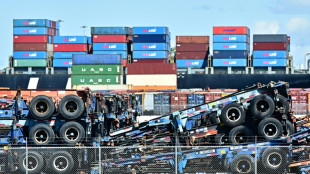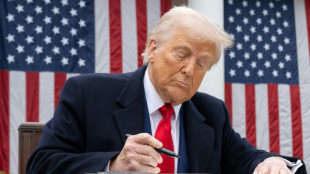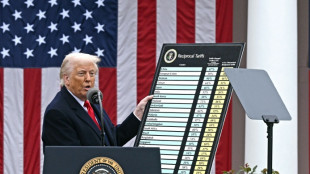
| RIO | -1.06% | 59.27 | $ | |
| CMSC | -0.89% | 22.302 | $ | |
| BTI | 3.79% | 41.835 | $ | |
| SCS | -7.61% | 10.65 | $ | |
| JRI | -1.24% | 12.88 | $ | |
| BCE | 2.44% | 22.365 | $ | |
| BCC | -8.5% | 94.07 | $ | |
| CMSD | -1.29% | 22.54 | $ | |
| RBGPF | -0.41% | 67.72 | $ | |
| NGG | 5.76% | 69.802 | $ | |
| RELX | 1.12% | 51.56 | $ | |
| BP | -7.1% | 31.57 | $ | |
| VOD | 2.82% | 9.385 | $ | |
| GSK | 2.94% | 38.78 | $ | |
| AZN | 3.68% | 74.98 | $ | |
| RYCEF | 0.1% | 9.79 | $ |

Russia launches new military drills as tensions rise over Ukraine
Russia on Tuesday launched new military exercises near Ukraine and in annexed Crimea as it accused the United States of ratcheting up tensions by putting several thousand of its own troops on alert.
With the West already accusing Moscow of massing more than 100,000 soldiers on the Ukrainian border, the Russian military said it had launched drills involving 6,000 troops in the south and in the Crimean peninsula annexed by Moscow in 2014.
The drills involve combat firing exercises with fighter jets, bombers, anti-aircraft systems and ships from the Black Sea and Caspian fleets, the ministry said.
The West is accusing Russia of preparing a potential invasion of pro-Western Ukraine and tensions with Moscow have reached levels not seen since the Cold War.
After a long video call with European leaders on Monday, US President Joe Biden said there was "total unanimity" on how to deal with Russia, with officials warning again of severe consequences if Moscow invades.
The Pentagon said it had put 8,500 troops on standby for deployment in support of NATO, while the alliance said it was sending ships and jets to bolster eastern Europe's defences.
President Vladimir Putin's spokesman Dmitry Peskov said US moves were adding to an already tense atmosphere.
"The United States is escalating tensions," he told reporters. "We are watching these US actions with great concern."
Russia denies it has any plans to invade Ukraine, where as well as seizing Crimea it has backed separatist forces in two breakaway regions.
Moscow has instead accused the West of increasing tensions with deployments and support for Ukraine, a former Soviet republic.
Russia has put forward a list of security demands including a guarantee that Ukraine never be allowed to join NATO and that alliance forces pull back in eastern European countries that joined the bloc after the Cold War.
- Divisions in the West -
The United States and NATO have rejected the demands and told Russia to withdraw from Ukraine's borders, warning that an attack will trigger damaging economic sanctions, as well as a beefed-up NATO presence in eastern Europe.
A series of talks in various European cities this month have failed to ease tensions, though US Secretary of State Antony Blinken and Russian Foreign Minister Sergei Lavrov agreed at a meeting in Geneva on Friday to keep talking.
The United States has promised to provide written answers to Moscow's demands this week, but has rejected calls for a ban on possible NATO expansion as a non-starter.
The crisis has laid bare divisions in the West, with some European Union members appearing less willing to take severe action against Russia, which supplies about 40 percent of the bloc's natural gas supplies.
The new government in EU economic powerhouse Germany in particular has faced criticism from Kyiv over its refusal to send defensive weapons to Ukraine, as well as hesitating over one of the harshest economic sanctions under discussion -- cutting Moscow from the global SWIFT payments system.
Biden held a one-hour-and-20-minute video conference with allied leaders from Europe and NATO on Monday, telling reporters afterwards: "I had a very, very, very good meeting -- total unanimity with all the European leaders."
There were hopes for some easing of tensions after the French government announced that Russian and Ukrainian officials would meet, along with French and German counterparts, in Paris on Wednesday to try to find a way out of the impasse.
- US military aid shipments -
The US has stepped up security assistance to Ukraine, with Blinken on a visit to Kyiv last week confirming another $200 million in aid.
A shipment arrived on Saturday and another batch was due on Tuesday which the US said would include "equipment and munitions to bolster the defensive capacity of the Ukrainian armed forces".
The United States has warned that Moscow could manufacture a "false flag" incident in Ukraine to be able to then frame an invasion as a justified response.
Ukraine said Tuesday it had dismantled a group of saboteurs "coordinated by Russian special services" who had planned a "series of armed attacks" aimed at destabilising the country.
Ukraine's SBU security service said it had seized weapons and arrested two residents, one of them a Russian citizen, operating in eastern and central Ukraine.
B.Diederich--LiLuX



